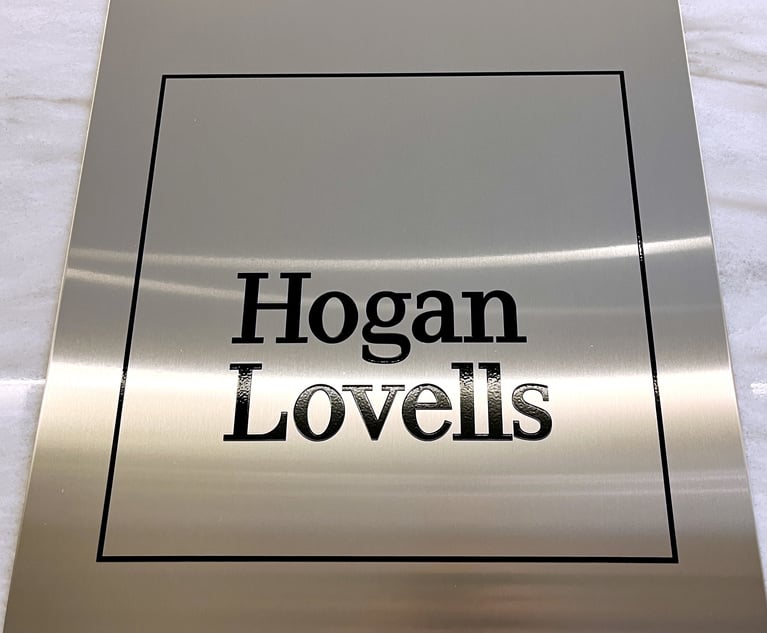Imposter Syndrome in Big Law Millennials: A Survival Guide
Although imposter syndrome can and does affect attorneys at any career stage, millennials working in Big Law may be particularly susceptible by virtue of their generation's shared values and the realities of large-firm practice.
August 02, 2018 at 04:31 PM
4 minute read
 Diana Hughes Leiden, left, and Shilpa Coorg, right, of Winston & Strawn. over one-half important aspect common symptom bias
Diana Hughes Leiden, left, and Shilpa Coorg, right, of Winston & Strawn. over one-half important aspect common symptom bias - Low-risk opportunities for failure. Low-risk often translates to low pressure. Provide young lawyers “stretch opportunities” in situations where the stakes are not high. Experiential training programs are a great way for junior attorneys to develop and practice important skills, get feedback, and even to fail, with minimal consequences. These programs allow the firm to identify high-potential individuals early and also allow senior attorneys to foster talent by providing mentorship and guidance.
- Robust mentorship programs. In addition to promoting confidence and offering an unbiased perspective, mentors can provide feedback and serve as a buffer on key projects. Although the best mentor-mentee relationships are often formed organically, formalized mentorship programs are important as well, because they serve as a structured resource for those unable to find effective mentoring relationships on their own. Formalized programs also add legitimacy to a mentor-mentee relationship, provide important guidelines on expectations of the relationship and confidentiality, and send a positive message about the firm's commitment to fostering junior lawyers.
- Early substantive opportunities. Allow attorneys to work on tasks that are challenging for their level. Providing substantive work with supervision, whether it is drafting a nondispositive motion from scratch, defending a deposition, or handling a small aspect of an important deal can build confidence gradually and prepare the attorney to handle more. Pro bono opportunities can also provide significant standup experience at any level.
- Gain expertise. Identify strengths and build confidence by becoming an expert at one thing. Become the go-to person on a discrete chunk of the project. Transfer those skills—and the belief in your own competency—to other projects.
- Build up to large tasks. Jumping from document review to taking a deposition can be daunting. Stay involved in the interim steps to build up to larger, higher-stakes tasks. For example, document review can lend itself to culling deposition materials and documents, which puts you in the best position to prepare the outline. The next logical step is taking the deposition. Breaking down a large task into increments and working to master each stage in the process can build confidence.
- Practice self-trust. Over-preparedness and perfectionism are symptoms, not alleviators, of imposter syndrome. Individuals suffering from imposter syndrome may mistakenly correlate over-preparation with success. Practice trusting that things will fall into place, even in small ways. Take on opportunities that feel scary and get used to feeling comfortable outside the comfort-zone. Focus on identifying what you can control to increase your feeling of self-trust.
- Know that you are not alone. Studies have estimated that 70 percent of the general population has experienced imposter syndrome. It is likely people around you, even those who look and seem confident, have felt these same feelings. Don't be afraid to ask for help from mentors or the professional development team at your firm.
- Fake it until you make it. The age-old cliché does work. Time and experience will chip away at feelings of inadequacy.
This content has been archived. It is available through our partners, LexisNexis® and Bloomberg Law.
To view this content, please continue to their sites.
Not a Lexis Subscriber?
Subscribe Now
Not a Bloomberg Law Subscriber?
Subscribe Now
NOT FOR REPRINT
© 2025 ALM Global, LLC, All Rights Reserved. Request academic re-use from www.copyright.com. All other uses, submit a request to [email protected]. For more information visit Asset & Logo Licensing.
You Might Like
View All
Texas-Based Ferguson Braswell Expands in California With 6-Lawyer Team From Orange County Law Firm
2 minute read

Hogan Lovells Hires Quinn Emanuel IP Litigator in San Francisco

Farella Elevates First Female Firmwide Managing Partners
Trending Stories
- 1Contract Technology Provider LegalOn Launches AI-powered Playbook Tool
- 2Court of Appeals Provides Comfort to Land Use Litigants Through the Relation Back Doctrine
- 3Amid the Tragedy of the L.A. Fires, a Lesson on the Value of Good Neighbors
- 4Democracy in Focus: New York State Court of Appeals Year in Review
- 5In Vape Case, A Debate Over Forum Shopping
Who Got The Work
J. Brugh Lower of Gibbons has entered an appearance for industrial equipment supplier Devco Corporation in a pending trademark infringement lawsuit. The suit, accusing the defendant of selling knock-off Graco products, was filed Dec. 18 in New Jersey District Court by Rivkin Radler on behalf of Graco Inc. and Graco Minnesota. The case, assigned to U.S. District Judge Zahid N. Quraishi, is 3:24-cv-11294, Graco Inc. et al v. Devco Corporation.
Who Got The Work
Rebecca Maller-Stein and Kent A. Yalowitz of Arnold & Porter Kaye Scholer have entered their appearances for Hanaco Venture Capital and its executives, Lior Prosor and David Frankel, in a pending securities lawsuit. The action, filed on Dec. 24 in New York Southern District Court by Zell, Aron & Co. on behalf of Goldeneye Advisors, accuses the defendants of negligently and fraudulently managing the plaintiff's $1 million investment. The case, assigned to U.S. District Judge Vernon S. Broderick, is 1:24-cv-09918, Goldeneye Advisors, LLC v. Hanaco Venture Capital, Ltd. et al.
Who Got The Work
Attorneys from A&O Shearman has stepped in as defense counsel for Toronto-Dominion Bank and other defendants in a pending securities class action. The suit, filed Dec. 11 in New York Southern District Court by Bleichmar Fonti & Auld, accuses the defendants of concealing the bank's 'pervasive' deficiencies in regards to its compliance with the Bank Secrecy Act and the quality of its anti-money laundering controls. The case, assigned to U.S. District Judge Arun Subramanian, is 1:24-cv-09445, Gonzalez v. The Toronto-Dominion Bank et al.
Who Got The Work
Crown Castle International, a Pennsylvania company providing shared communications infrastructure, has turned to Luke D. Wolf of Gordon Rees Scully Mansukhani to fend off a pending breach-of-contract lawsuit. The court action, filed Nov. 25 in Michigan Eastern District Court by Hooper Hathaway PC on behalf of The Town Residences LLC, accuses Crown Castle of failing to transfer approximately $30,000 in utility payments from T-Mobile in breach of a roof-top lease and assignment agreement. The case, assigned to U.S. District Judge Susan K. Declercq, is 2:24-cv-13131, The Town Residences LLC v. T-Mobile US, Inc. et al.
Who Got The Work
Wilfred P. Coronato and Daniel M. Schwartz of McCarter & English have stepped in as defense counsel to Electrolux Home Products Inc. in a pending product liability lawsuit. The court action, filed Nov. 26 in New York Eastern District Court by Poulos Lopiccolo PC and Nagel Rice LLP on behalf of David Stern, alleges that the defendant's refrigerators’ drawers and shelving repeatedly break and fall apart within months after purchase. The case, assigned to U.S. District Judge Joan M. Azrack, is 2:24-cv-08204, Stern v. Electrolux Home Products, Inc.
Featured Firms
Law Offices of Gary Martin Hays & Associates, P.C.
(470) 294-1674
Law Offices of Mark E. Salomone
(857) 444-6468
Smith & Hassler
(713) 739-1250






